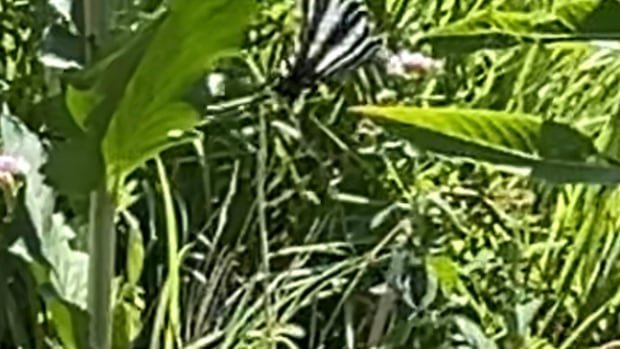A seldom-seen butterfly species known as the zebra swallowtail has made a remarkable appearance in Toronto’s High Park after more than a hundred years. Crystal Byrne, a devoted butterfly enthusiast, had the extraordinary luck of spotting this rare butterfly while exploring the park to observe the various species that emerge during this season.
Expressing her astonishment, Byrne shared, “This striking black and white butterfly emerged, and I immediately recognized it as a zebra swallowtail. I never imagined I would encounter one there.” The last documented sighting of this species dates back to 1896, as confirmed by Bob Yukich, a member of the Toronto Entomologists’ Association during an interview on CBC Radio’s Metro Morning.
Byrne, who dedicates her time to maintaining the endangered black oak savannah within High Park, described feeling immensely fortunate to be the one to witness the rare zebra swallowtail. She expressed, “Having spent countless hours in that park, it felt like a small token of appreciation from the land.”
High Park has been home to approximately 74 butterfly species since the 1980s, according to the High Park Nature Centre. Byrne noted the significance of this sighting, highlighting the rarity of the zebra swallowtail due to the scarcity of its host plant, Pawpaw, in the region. She observed interactions with other butterfly species, such as the territorial cabbage white butterflies that would chase off the zebra swallowtail whenever it landed nearby.
The declining population of butterflies is primarily attributed to habitat loss and the extensive use of insecticides, according to insights from the Toronto Entomologists’ Association. Another concerning example is the Monarch butterfly, which has seen a drastic decrease in its population across North America, necessitating collaborative conservation efforts among Canada, the U.S., and Mexico.
The zebra swallowtail, once prevalent in southwestern Ontario near Windsor in the early 1900s, faced habitat destruction due to development and deforestation, leading to the disappearance of the Pawpaw plant essential for its survival, as explained by Yukich. He emphasized the rarity and significance of encountering such butterflies, highlighting the importance of their preservation.
Recognized as a “specially protected” species under Ontario’s Fish and Wildlife Conservation Act, harming, capturing, transporting, or killing the zebra swallowtail is prohibited, according to a City of Toronto report. Yukich expressed the special nature of witnessing the zebra swallowtail after years of hearing about their habitat loss, emphasizing the value of their return rather than continued disappearance.

